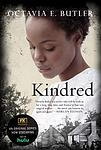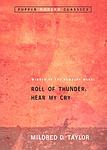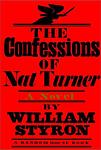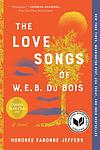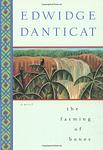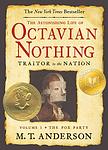The Greatest "Historical fiction, African American" Books of All Time
Click to learn how this list is calculated.
This list represents a comprehensive and trusted collection of the greatest books. Developed through a specialized algorithm, it brings together 300 'best of' book lists to form a definitive guide to the world's most acclaimed books. For those interested in how these books are chosen, additional details can be found on the rankings page.
Genres
Historical fiction is a genre of literature that combines fictional stories with real historical events, settings, and characters. These books often take place in a specific time period and are based on research and factual information, but also include imaginative elements to create a compelling narrative. Historical fiction allows readers to experience the past in a unique and engaging way, while also providing insight into the social, cultural, and political issues of the time.
The category of "African American" books refers to literature written by authors of African descent who have lived or currently live in the United States. These books often explore themes of race, identity, and the African American experience, including topics such as slavery, civil rights, and contemporary issues facing the community. The genre includes a range of literary forms, including fiction, non-fiction, poetry, and memoirs, and offers a diverse and rich perspective on the African American experience.
Countries
Date Range
Reading Statistics
Click the button below to see how many of these books you've read!
Download
If you're interested in downloading this list as a CSV file for use in a spreadsheet application, you can easily do so by clicking the button below. Please note that to ensure a manageable file size and faster download, the CSV will include details for only the first 500 books.
Download-
1. To Kill a Mockingbird by Harper Lee
Set in the racially charged South during the Depression, the novel follows a young girl and her older brother as they navigate their small town's societal norms and prejudices. Their father, a lawyer, is appointed to defend a black man falsely accused of raping a white woman, forcing the children to confront the harsh realities of racism and injustice. The story explores themes of morality, innocence, and the loss of innocence through the eyes of the young protagonists.
-
2. Beloved by Toni Morrison
This novel tells the story of a former African-American slave woman who, after escaping to Ohio, is haunted by the ghost of her deceased daughter. The protagonist is forced to confront her repressed memories and the horrific realities of her past, including the desperate act she committed to protect her children from a life of slavery. The narrative is a poignant exploration of the physical, emotional, and psychological scars inflicted by the institution of slavery, and the struggle for identity and self-acceptance in its aftermath.
-
3. Uncle Tom's Cabin by Harriet Beecher Stowe
This renowned novel provides a harsh critique of American slavery through the story of Uncle Tom, a long-suffering black slave. The narrative follows Tom as he is sold and transported to the harsh South, encountering a variety of characters, both kind and cruel. The novel powerfully explores themes of faith, the immorality of slavery, and the concept of humanity, ultimately contributing to the abolitionist cause and leaving a significant impact on the American perception of slavery.
-
4. Kindred by Octavia E. Butler
"Kindred" is a gripping and thought-provoking novel that follows the life of Dana, a young African American woman living in the 1970s. Suddenly, she finds herself inexplicably transported back in time to the early 19th century, where she becomes entangled in the lives of her ancestors, who are enslaved on a plantation. As Dana navigates the brutal realities of slavery, she grapples with her own identity, the complexities of race, and the enduring legacy of the past. With its powerful storytelling and exploration of the connections between past and present, "Kindred" is a profound examination of history, race, and the enduring resilience of the human spirit.
-
5. Roots by Alex Haley
This groundbreaking historical novel follows several generations of an African American family, beginning with Kunta Kinte, a man captured in Gambia in the 18th century and sold into slavery in the United States. Through Kinte and his descendants, the narrative explores the brutal realities of slavery and its aftermath, the struggle for freedom and civil rights, and the perseverance of a family through immense hardship. The story is based on the author's own family history, making it a significant work in the exploration of African American heritage and identity.
-
6. Passing by Nella Larsen
"Passing" is a novel about two light-skinned African-American women, Irene Redfield and Clare Kendry, who can 'pass' as white. Set during the Harlem Renaissance, the story explores the intricacies and challenges of racial identity in 1920s America. Clare, who has chosen to live as a white woman, married to a racist who is unaware of her true heritage, risks everything when she reconnects with her childhood friend Irene, causing both women to grapple with their identities and desires, leading to tragic consequences.
-
7. Roll of Thunder, Hear My Cry by Mildred D. Taylor
Set in Mississippi during the Great Depression, this novel follows the life of a young African American girl and her family who are struggling to maintain their integrity, pride, and independence in the face of racism and social injustice. The family owns a piece of land which provides them some protection from the harsh realities of racial discrimination. The story is a poignant exploration of how they navigate through a prejudiced society, face social and economic challenges, and fight to keep their land.
-
8. The Known World by Edward P. Jones
"The Known World" is a historical novel set in antebellum Virginia, exploring the complex relationships between slaves, free blacks, and whites. The story revolves around a black man who becomes a slave owner, his wife, and their slaves. It provides a unique perspective on the moral complexities and personal consequences of slavery, while also examining the intricate social hierarchy of the time. The narrative is filled with richly drawn characters, each with their own stories and struggles, offering a vivid portrayal of a little-known aspect of American history.
-
9. The Confessions of Nat Turner by William Styron
"The Confessions of Nat Turner" is a fictionalized account of a historical event, the 1831 Virginia slave uprising led by Nat Turner. The book is presented as a first-person narrative from Turner's perspective, exploring his life as a slave, his religious visions, and the violent rebellion he led against white slaveholders. The novel delves into the complexities of slavery, morality, and rebellion, while also examining the psychological trauma inflicted by the institution of slavery.
-
10. The Underground Railroad by Colson Whitehead
This novel follows the journey of Cora, a young slave on a cotton plantation in Georgia, who escapes and embarks on a journey towards freedom via the Underground Railroad. The book presents a literal version of the historical Underground Railroad, portraying it as a physical network of tunnels and tracks beneath the Southern soil. As Cora travels from state to state, she encounters different worlds and harsh realities, each one illuminating the various forms of oppression Black people faced in America. The narrative is a brutal exploration of America's history of slavery and racism, and a testament to the unyielding spirit of those who fought against it.
-
11. A Lesson Before Dying by Ernest J. Gaines
Set in the pre-Civil Rights South, the novel explores the story of a young black man wrongfully accused and sentenced to death for a crime he didn't commit. A local schoolteacher, at the request of the man's godmother, attempts to help the condemned man gain a sense of dignity and self-worth in the final days of his life. The story grapples with issues of racial inequality, justice, humanity, and moral obligation.
-
12. A Lost Lady by Willa Cather
"A Lost Lady" is a story set in the American West, focusing on a beautiful and captivating woman who is married to a much older, wealthy railroad magnate. As her husband's health and fortune decline, she becomes involved with a younger man, which leads to scandal. The narrative explores themes of changing societal norms, the decline of the pioneer era, and the transformation of the American West.
-
13. The Chaneysville Incident by David Bradley
This novel centers around John Washington, an African-American historian, who returns to his hometown in Pennsylvania to care for his dying stepfather. During his stay, he becomes obsessed with uncovering the truth about the mysterious death of 13 runaway slaves, including his own ancestor, in Chaneysville. His relentless search for answers becomes a journey of self-discovery as he grapples with the history of racism, his personal relationships, and his own identity.
-
14. Strange Fruit by Lillian Smith
"Strange Fruit" is a controversial novel set in the 1920s South, which explores the tragic consequences of a forbidden interracial relationship between a white man and a black woman. The narrative delves into the deeply ingrained racial prejudice, hypocrisy, and societal norms of the era, leading to a tragic end for the couple. The book is a powerful indictment of racism and a plea for understanding and change.
-
15. Homegoing by Yaa Gyasi
This epic novel traces the lineage of two half-sisters from 18th century Ghana to present day America. One sister is sold into slavery and shipped to America, while the other is married off to a British slaver and remains in Africa. The book follows their descendants through the generations, exploring the lasting impact of slavery and colonialism on Black lives. The narrative showcases the struggles, resilience, and triumphs of each generation, providing a deep and personal view into the historical events and societal changes that shaped their lives.
-
16. The Help by Kathryn Stockett
Set in the early 1960s in Jackson, Mississippi, the story revolves around three main characters: two black maids and a young white woman. The maids, who have spent their lives taking care of white families and raising their children, agree to share their experiences with the young woman, who is an aspiring writer. The book offers a poignant and humorous look at the complex relationships between these women, while also exploring the racial tensions and social changes of the era.
-
17. Brown Girl, Brownstones by Paule Marshall
This novel explores the life of a young Barbadian-American girl growing up in Brooklyn during the Great Depression and World War II. The protagonist struggles with her identity as she navigates the cultural divide between her parents' traditional Barbadian values and her own American aspirations. The story delves into the themes of immigration, cultural identity, race, and gender, as the protagonist comes of age and seeks to establish her independence.
-
18. A Mercy by Toni Morrison
"A Mercy" by Toni Morrison is a historical fiction novel set in the late 17th century in America. The story follows a young slave girl named Florens who is sold by her mother to a Dutch trader in exchange for a debt. Florens is then taken to a plantation in Virginia where she becomes part of a diverse group of women, including a Native American, a white indentured servant, and the plantation owner's wife. The novel explores themes of race, gender, and power dynamics as the women navigate their relationships with each other and the harsh realities of life in colonial America.
-
19. The Love Songs Of W.E.B. Dubois by Honorée Fanonne Jeffers
"The Love Songs of W.E.B. Du Bois" is a multi-generational family saga that explores the complexities of race, identity, and history through the experiences of Ailey Pearl Garfield. As a young woman, Ailey is haunted by the legacy of her family's slave-owning past and struggles to reconcile her own sense of self with the expectations of her community. Along the way, she uncovers the stories of her ancestors, including the famed civil rights leader W.E.B. Du Bois, and grapples with the enduring impact of racism in America. With lyrical prose and a rich cast of characters, Honoree Fanonne Jeffers' novel is a powerful meditation on the enduring power of love and the search for belonging in a divided world.
-
20. The Farming of Bones by Edwidge Danticat
"The Farming of Bones" is a historical fiction novel that revolves around the 1937 massacre of Haitian workers in the Dominican Republic. The story is told through the eyes of a young Haitian woman working as a servant for a wealthy Dominican family. As political tensions rise, the protagonist and her fellow Haitians face increasing hostility and violence, culminating in a mass slaughter. The novel explores themes of identity, love, loss, and the human capacity for cruelty and resilience.
-
21. Indigo by Beverly Jenkins
"Indigo" is a historical romance novel that takes place in the 19th century and centers around Hester Wyatt, a former slave who has found freedom in Michigan and is now a dedicated member of the Underground Railroad. Her life takes an unexpected turn when she shelters a wounded fugitive named Galen Vachon, a notorious Black Daniel who is also a conductor on the Railroad. As Hester nurses him back to health, a deep bond forms between them, blossoming into a passionate romance. Despite the dangers that surround them, including the threat of capture and the challenges posed by a racially divided society, Hester and Galen's love for each other and their commitment to the cause of freedom endure, showcasing the resilience of the human spirit and the power of love to overcome adversity.
-
22. Washington Black by Esi Edugyan
"Washington Black" is a historical novel by Esi Edugyan that tells the story of a young slave named George Washington Black, who is forced to flee a plantation in Barbados with the help of his master's brother. The two embark on a journey that takes them across the globe, from the Caribbean to the Arctic, and Washington Black discovers his talent for scientific illustration. Along the way, he faces challenges and struggles with his identity as a black man in a world dominated by white men. The novel explores themes of freedom, identity, and the impact of colonialism on individuals and societies.
-
23. The Good Lord Bird: A Novel by James McBride
The novel is a fictional account of the life of notorious abolitionist John Brown, told from the perspective of a young, freed slave named Henry Shackleford. Disguised as a girl for his own safety, Henry becomes a member of Brown's motley family of abolitionist soldiers, and finds himself in the historic 1859 raid on the U.S. Armory at Harpers Ferry. The book blends historical facts with imaginative storytelling, providing a humorous yet poignant exploration of race, religion, and identity in America.
-
24. The Astonishing Life of Octavian Nothing, Traitor to the Nation, Vol I and II by M.T. Anderson
The book follows the life of Octavian, a young African American boy raised in a strange and secretive environment in Revolutionary-era Boston. He is brought up as part of a philosophical experiment by a group of rationalist scholars who seek to determine the intellectual capacity of Africans. As he matures, Octavian realizes the true nature of the experiment and the oppressive reality of his existence. His journey of self-discovery leads him to question the very foundations of the society that treats him as an object of study rather than a human being. As the American Revolution unfolds around him, Octavian is drawn into the chaotic struggle for independence, identity, and survival, challenging the notions of freedom and what it means to be a traitor to a nation built on the paradox of liberty and slavery.
-
25. The Water Dancer by Ta-Nehisi Coates
This novel follows the life of a young slave, Hiram Walker, who possesses a mysterious power related to memory and water, which he discovers after almost drowning. His journey from the plantations of Virginia to the Underground Railroad and the abolitionist movement in the North is filled with loss, love, and a desperate desire for freedom. The narrative explores themes of slavery, racial injustice, and the power of memory and storytelling, all underpinned by the protagonist's supernatural abilities.
Reading Statistics
Click the button below to see how many of these books you've read!
Download
If you're interested in downloading this list as a CSV file for use in a spreadsheet application, you can easily do so by clicking the button below. Please note that to ensure a manageable file size and faster download, the CSV will include details for only the first 500 books.
Download


